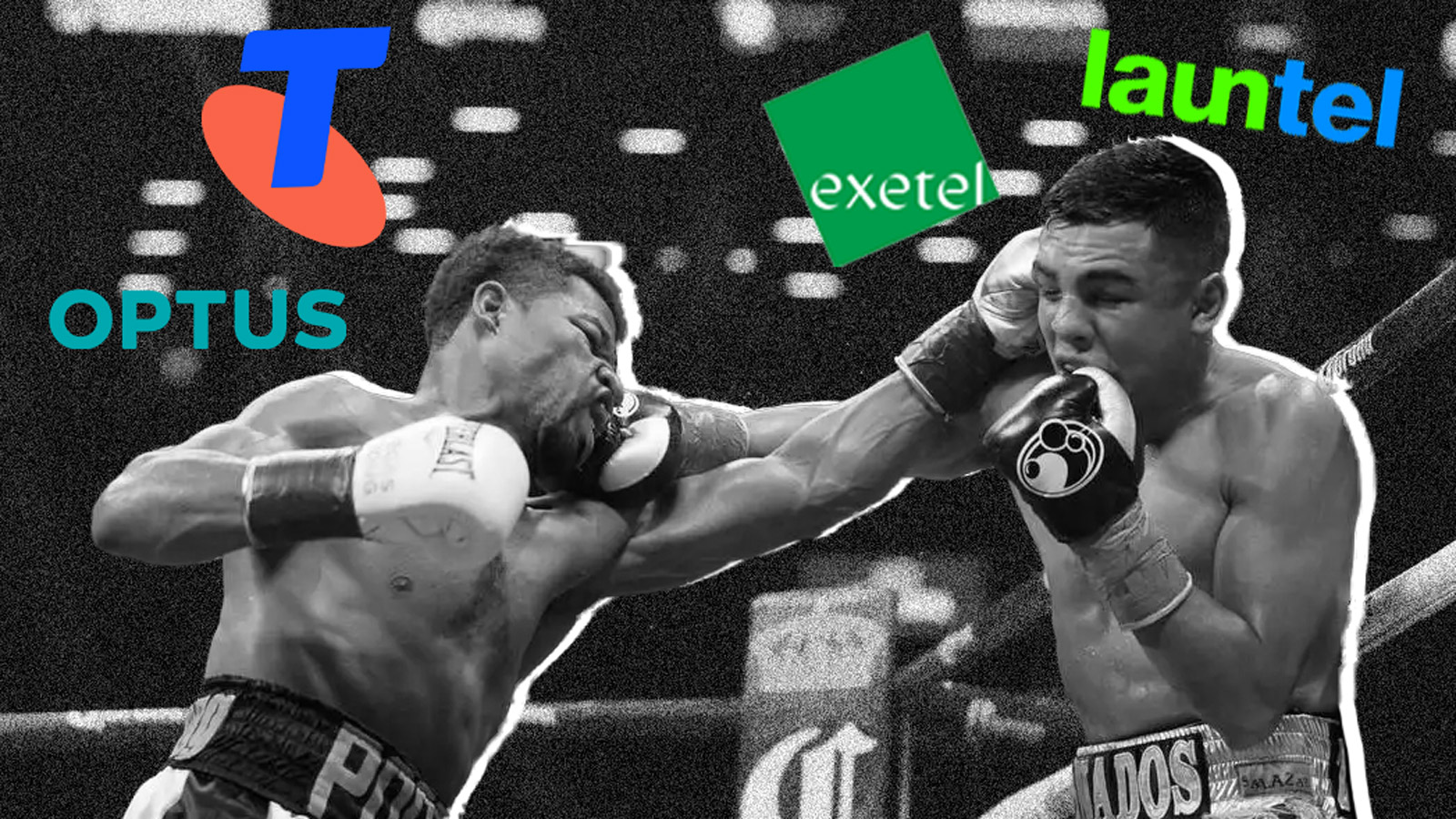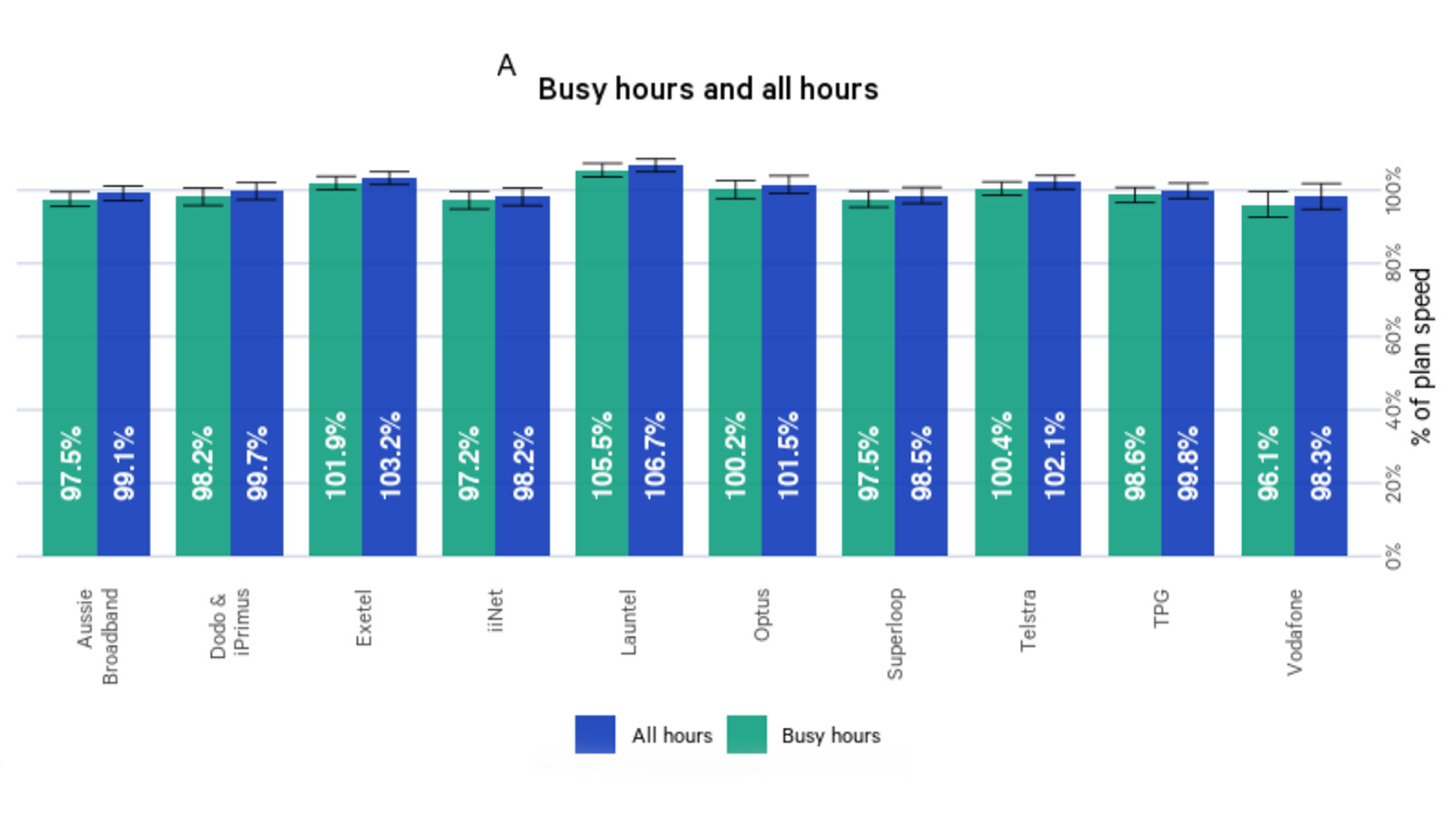These four NBN providers overdeliver on speed, according to the latest ACCC report
More evidence that little guys can go head-to-head with big telcos

Whenever we sign up for one of the best NBN plans, the main thing we want in return for our monthly fee is the download speed we're promised. The best NBN providers will also quote a typical evening speed figure for whichever plan you're looking at, as this is usually the minimum speed you can expect.
While it's certainly the case that advertised NBN speeds are being delivered more often, it's always nice when you get a little extra something for free, right? Well that appears to be the case with four NBN providers in particular, each of which was found to overdeliver on download speeds in the most recent report published by Australia's consumer watchdog.
The Australian Competition and Consumer Commission (ACCC) recently published its latest quarterly broadband performance data report, which monitors the entire broadband landscape in the country, to help visualise just how well the telcos we pay our money to, perform.
In the recent report, published in September 2023, Telstra, Optus, Exetel and Launtel were all found to go above and beyond when it comes to download speeds. The most promising factor at play here, however, is that not only did all four deliver higher than advertised speeds during all hours, but they all managed it during the busy evening hours of 7pm to 11pm as well. No easy feat.

In the graph above, we can see that Launtel — a Tasmanian-based internet service provider (ISP) — was the clear winner, delivering 106.7% of NBN plan speeds across all hours, and a staggering 105.5% during the busy hours.
Exetel — a provider we recommend regularly here at Tom's Guide — wasn't far behind, delivering 103.2% and 101.9% across all hours and the busy hours, respectively.
Fortunately for the major telcos of Optus and Telstra, they weren't caught with their tail between their legs, and also managed to deliver over 100%. The two are similarly matched, but it was Telstra that just nudged ahead, delivering 102.1% and 100.4% of plan speeds across all hours and the busy hours, respectively.
Get instant access to breaking news, the hottest reviews, great deals and helpful tips.
And finally, Optus managed to delivered 101.5% and 100.2% for the same metrics.
These results aren't the first indication we've had that the smaller NBN providers are more than capable of keeping up with the bigger companies. Earlier this year in March, upon the release of a previous ACCC report, we noticed that the big three telcos of Telstra, Optus and TPG lost some 95,000 combined active connections, while an 'Others' group — which we can only assume groups together the smaller providers — gained 86,000.
We weren't able to resolutely say why those losses and gains took place, but the obvious logical assumption would be that customers were — and hopefully still are — becoming more aware of more affordable providers offering similar, or in some cases better, NBN services.
With the current financial climate in Australia showing no immediate signs of letting up, saving money wherever one can should be as paramount as ever. Taking a 50Mbps NBN 50 plan as an example — 50Mbps speeds should comfortably handle the average household usage — and drawing pricing data from WhistleOut, we've determined the average monthly cost of a plan (following any introductory offers) is AU$76.36.
An Exetel NBN 50 plan currently costs AU$74.99p/m, Optus AU$85p/m and Telstra AU$95p/m.
Launtel works on a different pricing model to most other NBN providers. Instead of paying monthly, you pay a daily rate. This means if there are days you know you won't be home, you can switch off your service and you won't pay. However, Launtel's current pricing requires AU$2.50 per day of a 50Mbps service. Based on 30 days, this equates to AU$75, undercutting the bigger players.
The other NBN providers monitored during the same period all delivered close to 100% of their plan speeds, meaning there is plenty of weight to the argument that shopping around and finding the cheapest NBN plan that works for your home will be beneficial.

Max is a digital content writer for Tom’s Guide in Australia, where he covers all things internet-related, including NBN and the emerging alternatives, along with audio and visual products such as headphones and TVs. Max started his career in his homeland of England, where he spent time working for What Hi-Fi? and Pocket-lint, before moving to Australia in 2018.
 Club Benefits
Club Benefits





